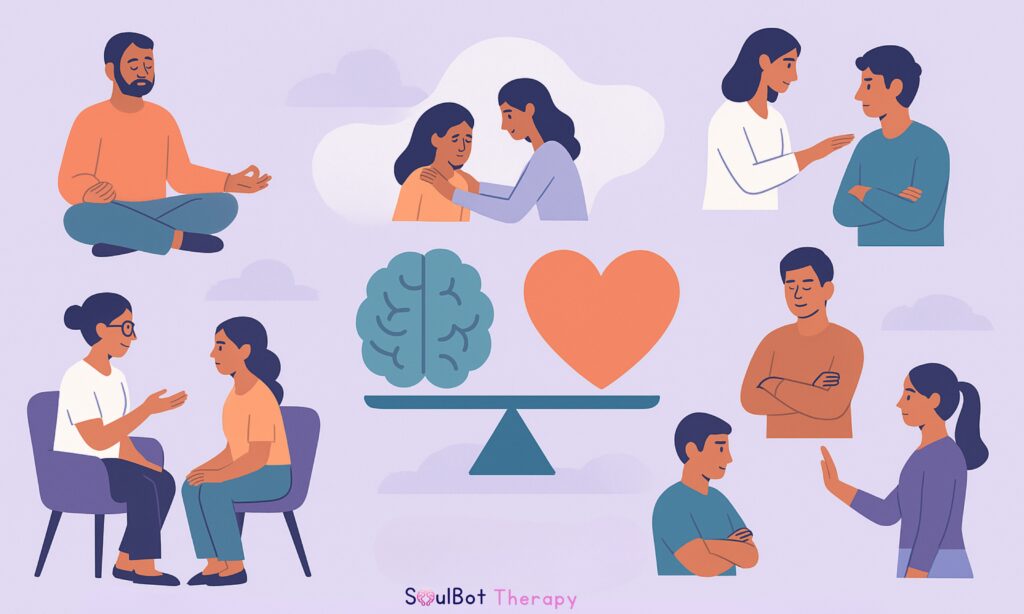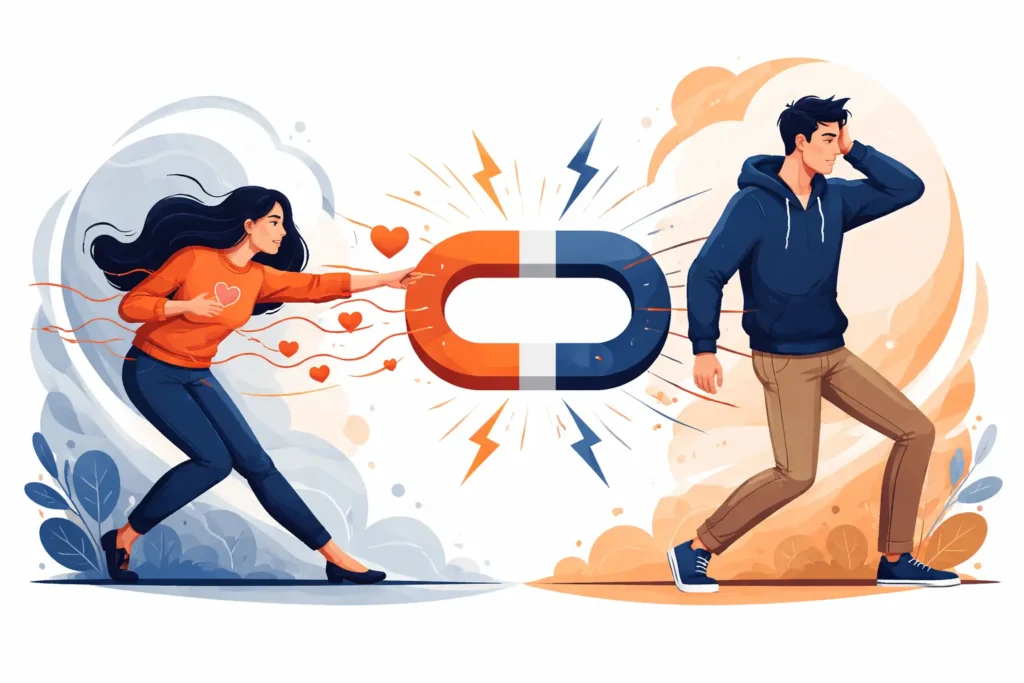You’ve probably met someone like this.
- Who seems effortlessly composed, even in tough situations.
- They navigate challenges with calm, respond thoughtfully when triggered, and make you feel truly heard and understood.
What’s their secret?
- It’s not luck or therapy-speak.
- It’s the result of the practiced habits of emotionally intelligent people. — and, more importantly, the habits that keep it alive.
“Emotional intelligence isn’t a trait. It’s a daily practice.”
In this blog, we’ll explore six essential habits of emotionally intelligent people — and how you can start building them in your own life, starting today.
What Is Emotional Intelligence?
Before we dive into the habits of emotionally intelligent people, here’s a quick refresher:

Emotional intelligence (EQ) is your ability to understand, control, and express your own emotions — while also recognizing and supporting the feelings of others.
- High EQ = better communication, stronger relationships, and a more resilient inner world.
- Low EQ = reactivity, poor boundaries, and emotional burnout.
📚 Learn more: The study examines how emotional intelligence correlates with positive psychological characteristics, well-being, and academic success.
Why Focus on Habits of Emotionally Intelligent People — Not Personality?
You don’t need to be born emotionally intelligent. You need to practice tiny shifts that add up over time. Habits are the behavioral engine of EQ. They’re what turn emotional awareness into emotional intelligence — and they’re completely learnable.
6 Habits of Emotionally Intelligent People
1️⃣ They Pause Before Reacting
This is the golden habit of emotionally intelligent people. They don’t snap, ghost, or over-explain.
- They pause, breathe, and then respond with clarity.
- They ask: “What am I feeling right now?”
- They regulate their nervous system
- They avoid saying things they’ll regret
🧘SoulTip: Try the “3-Breath Rule” next time you feel triggered. It interrupts reactivity in real-time.
2️⃣ They Name Emotions — Not Just Feel Them
Instead of saying, “I’m fine” or “I’m mad,” they go deeper:
- “I’m feeling dismissed because my voice wasn’t heard.”
- “I’m overwhelmed — not lazy. I need support.”
They use emotional vocabulary to process — and prevent — emotional spirals.
🧘SoulTip: Use tools like the Feelings Wheel (via Greater Good Science Center) to grow your language.
3️⃣ They Listen to Understand — Not To Win
High-EQ folks don’t interrupt or dominate.
- They reflect on what they heard
- They ask curious questions
- They validate emotions, not just facts
“That sounds really tough — thanks for sharing that with me.” This habit builds instant trust — in relationships, friendships, and leadership.
4️⃣ They Apologize Without Defensiveness
You won’t hear, “I’m sorry you feel that way.”
You’ll hear:
“You’re right — I didn’t handle that well. I’m sorry.”
Emotionally intelligent people don’t make excuses.
They take responsibility — not shame.
5️⃣ They Set Boundaries Without Guilt
Boundaries aren’t walls.
They’re guidelines for healthy connection.
EQ-driven people can say: about this.”
- “I can’t commit to that, but I hope it goes well.”
They protect their peace without punishing others.
6️⃣ They Reflect on What Triggered Them (Before Blaming)
When something stings, they pause to ask:
- “What old wound did that touch in me?”
- “Is this about them — or something deeper in me?”
Instead of lashing out, they self-inquiry — and grow.
How Do Emotionally Intelligent People Act in Daily Life?
This is what EQ habits look like in action:
| Situation | Low EQ Reaction | High EQ Habit |
| Criticism | Gets defensive or shuts down | Pauses → Reflects → Thanks feedback |
| Conflict | Avoids or explodes | Regulates → Communicates calmly |
| Boundaries | Feels guilty or over-explains | Clearly asserts needs without apology |
| Emotions from others | Feels overwhelmed or dismissed | Validates and holds emotional space |
| Feeling triggered | Blames the other person | Asks: “Why did that hit me so hard?” |
How to become more emotionally intelligent?
Try this 5-day micro-habit plan:
| Day Practice Day 1: Name one emotion per hour for 5 hours Day 2: Pause and breathe before sending any reactive message Day 3: Reflect on a past mistake — and write a kinder version Day 4: Say “no” to one thing (without apology) Day 5: Ask one person: “How did that land for you emotionally?” |
Want to Know Where Your EQ Stands?
Take our free Emotional Intelligence Test to assess your habits around:
- Communication under stress
- Conflict resolution
- Empathy + emotional presence
- Boundary-setting and self-regulation
🎯 Take the EQ Test →
Final Thought: Emotional Intelligence Grows in the Smallest Moments
- You don’t need to be a therapist.
- You don’t need to be “chill” all the time.
- You need to pause. Reflect. Name what’s real.
- And choose response over reaction — one breath at a time.
🧠 Save this blog — or share it with someone who’s building their own EQ.You’re not behind. You’re just beginning.








